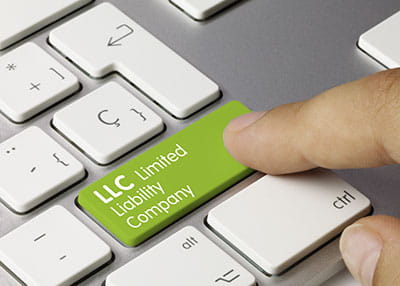The ownership of rental properties can expose landlords - and their personal assets - to liabilities from legal judgments and put at risk not only their private bank accounts but also legacies intended for loved ones. Use of a limited liability company (LLC) for rental property is one way to protect personal assets. As part of a comprehensive estate plan, a revocable living trust can be used to protect LLCs from probate administration, enabling your assets to be distributed promptly to your beneficiaries.
Successful landlords know that ownership of rental property can provide reliable income for generations to come when the proper estate planning strategies are utilized.
But many less than lucky landlords can attest that owning rental property carries risks that can lead to asset-consuming lawsuits that decimate an estate intended to benefit one's heirs. If landlords lack adequate liability insurance, an accident on their property has the potential to jeopardize personal assets that would be needed to satisfy a legal judgment.

In other words, one misplaced banana peel combined with a plaintiff can lead to a slip-up that can cost a fortune, wreck your retirement and negatively impact the legacy you want to leave behind.
Besides insurance, one option for owners of rental property to protect their personal assets from the clutches of damages-seeking litigants is to transfer its ownership to a limited liability company (LLC).
The popular LLC, which first came into existence in Wyoming in 1977 and now thrives nationwide, is a legal entity that can protect its owners, known as members, from personal liability from lawsuits and debt claims. The LLC can protect the personal assets of its members - bank accounts, investments, homes, vehicles - from a lawsuit gone bad.
The LLC can serve as a shield against a tenant or visitor who slips on that wayward banana peel and sues the landlord with visions of being awarded his sports car and vacation cottage. Insurance has liability limits, and when those are exceeded, successful plaintiffs may go after personal assets of the landlord.
WHO SHOULD "OWN" AN LLC?
For estate planning purposes and to avoid exposure to claims, many experts advise that rental properties should not be owned directly by individuals or revocable living trusts. Instead, rental properties should be “owned” by LLCs. A trust, then, can serve as the owner of the LLC. There are two key benefits to the strategy. The LLC maintains protection from liability, and the trust is protected from probate. The trust also can specify how to distribute the rental property to beneficiaries upon the LLC member's death.
To provide more layers of protection from personal liability, separate LLCs can be created for individual rental properties. LLCs also are utilized for properties with multiple owners. When rental properties are in multiple states, it's suggested that LLCs be established in the states where they are located. An LLC in a landlord's home state can even be designated as holding company to own LLCs that have been created for properties in other states.
Besides liability protection, LLCs may offer tax advantages when formed as a real estate holding company. LLCs with one owner, known as single-member LLCs, are considered as “disregarded entities” by the IRS. As a result, a separate federal tax return for the LLC is not required. Instead, the profits and losses of an LLC pass directly to the member and can be reported as part of the member's individual tax return.
Additionally, mortgage interest paid by a member can be deducted on the return. The pass-through tax advantages extend to LLCs owned by more than one person, which are known as multimember LLCs. When LLCs have multiple members, operating agreements often are devised to spell out their individual rights, responsibilities and ownership stakes.
Another advantage of an LLC is its simplicity and flexibility. Unlike a corporation or partnership, an LLC does not require the appointment of corporate officers or the formation of a board of directors.
WHAT ABOUT EXPENSES - AND PAPERWORK?
Experts caution that statutory requirements to form an LLC should be followed carefully to ensure the ongoing validity and propriety of the entity. For example, the status of an LLC can be put at risk when LLC funds are co-mingled with personal funds.

“If you do set up an LLC, be sure never to mingle your LLC money with your personal money,” cautions landlordology.com. “If you head to the mall and use money from your LLC to buy a new outfit, or if you use your personal money to pay for a new garbage disposal for your rental property, a person suing you could claim that your LLC is not a separate entity. That could mean you lose your protection.”
Ideally, an LLC should be created before a rental property is purchased to reduce mortgage hassles, title transfer expenses and consulting fees. When transferring a title to an LLC, the mortgage holder must be notified; tenants must be advised about the ownership change; leases need to be updated; and a title transfer tax, if applicable, must be paid.
Some challenges can arise and expert advice may be needed when transferring a title from private ownership to a corporate entity. That's because a mortgage holder may adjust the interest rate of a residential loan, seek a higher commercial loan rate or even call the loan when a title is transferred to an LLC. Some taxing jurisdictions may levy higher rates for real estate that is considered “commercial.” Homeowners insurance is another matter. Some companies may charge higher premiums for a property that is owned by a business and thus considered a commercial property.
Initial costs to create an LLC vary widely from state to state. Expect expenses and legal fees to register the entity, publish a public notice of intent, create an operating agreement and for the title transfer tax. Ongoing expenses may include an annual state franchise tax or an annual renewal fee. Remember, an LLC is a legal entity. To maintain its integrity in court, an LLC should include not only an operating agreement, but also a corporate book, minutes of ownership meetings, a bank account and a tax ID number.
While there are many details and expenses to consider, the process can be reduced to three key steps. First, create an LLC with a revocable living trust as the owner (member). Second, title the rental property in the name of the LLC. Third, operate the business with required formality. That way, you can achieve protection from litigants as well as probate proceedings. While the properties owned by LLCs still have exposure to legal judgments, the LLC member's personal nest egg - from bank accounts to trusts as part of an estate plan - can be shielded.



